Blockchain Nexus: Bridging Innovations and Standards for Tomorrow’s Digital Frontier
The goal of the workshop is to foster a dynamic exchange of ideas and knowledge among researchers and practitioners, both from academia and industry, aiming to identify key challenges, opportunities, and best practices in bridging the gap between blockchain, distributed ledger technology (DLT), emerging innovations and standards. This workshop is a SEEBLOCKS (seeblocks.eu) initiative, a Digital Europe Programme project focusing on bridging the gap between the Research, Academia and Standardisation Communities, and sustaining capacity building of blockchain experts to funnel innovations into standardsactivities.
Workshop Theme
Blockchain and DLT has emerged as a transformative force, reshaping and revolutionising industries across the globe. At the heart of this revolution lies a delicate balance between emerging innovations and the crucial need for standardisation. Originally conceived as the underlying technology for cryptocurrencies, Blockchain has matured beyond its cryptocurrency roots. Its decentralised and immutable nature, the enhanced security and transparency, has given rise to a myriad of applications and innovations in a variety of domains, from supply chain management and healthcare to finance and beyond. This maturation from blockchain technology is turning it into a crucial technology to complement with other technologies, namely Smart Technologies, Digital Security and Privacy, Computer Architectures, amongst other topics, all essential for better digital futures.
As the blockchain landscape diversifies, standardisation becomes paramount. Standards provide a common language and framework, facilitating interoperability, scalability, and the integration of disparate blockchain solutions. They address various aspects, including data formats, consensus mechanisms, cryptographic algorithms, identity management, privacy protection, new use cases for technology, smart contract development, verification and execution, etc. The challenge lies in striking a delicate balance between fostering innovation and establishing a cohesive set of standards that can guide the industry toward maturity.
Scope of the Workshop
This workshop will facilitate much needed interaction and information exchange among researchers, from both academia and industry, on recent and ongoing developments, key issues and challenges, and best practices related to Blockchain and DLT standardisation and bridging the gap between Blockchain innovation and standardisation. Researchers and practitioners from all over the world, from academia and industry, will be invited to present their work and perspectives and participate in the workshop.
Topics of interest include, but are not limited to:
● Blockchain and DLT related standardisation initiatives: systematic reviews, surveys, use case studies, etc.
● Future trends and topics for Blockchain and DLT standardisation
● Best practices in Blockchain and DLT standardisation
● Challenges and opportunities for Blockchain and DLT standardisation
● Novel use cases for Blockchain
● Bridging the gap between Blockchain emerging innovations and standardisation
● Blockchain and DLT standardisation in education: innovation, best practices, use case studies, etc.
● Blockchain and AI – a call for standardisation?
● Integration of Blockchain and other emerging technologies
Paper Templates
IEEE Paper templates are available in MS Word 2003 and LaTex. All submissions must use US 8.5×11 letter page format.
IEEE Conference Publishing Policies
All submissions must adhere to IEEE Conference Publishing Policies.
IEEE Cross Check
All submission will be screened for plagiarized material through the IEEE Cross Check portal.
Important Dates – Workshops
Workshop, Fast Abstract, SRS, JC Notification
May 10, 2024 (updated)
Camera Ready & Registration due
May 24, 2024
Workshop Chairs
John Favaro, Trust-IT, Italy
Knut Blind, Fraunhofer ISI, Germany
Fiona Delaney, CEO Origin Chain Networks, Ireland
Irina Tal, Dublin City University, Ireland
Program Committee
Malika Bendechache, University of Galway, Ireland
Takfarinas Saber, University of Galway, Ireland
Carmen Holotescu, “Ioan Slavici University” of Timisoara, Romania
Ramona Trestian, Middlesex University, UK
Simone Wurster, Fraunhofer, Germany
Irina Tal, Dublin City University, Ireland (co-chair)
Mohammed Amine Togou, Dublin City University, Ireland
Mohammad Fardad, Dublin City University, Ireland
Elham Mohammadzadeh Mianji, Dublin City University, Ireland
Trevor Clohessy, Atlantic Technological University, Ireland
